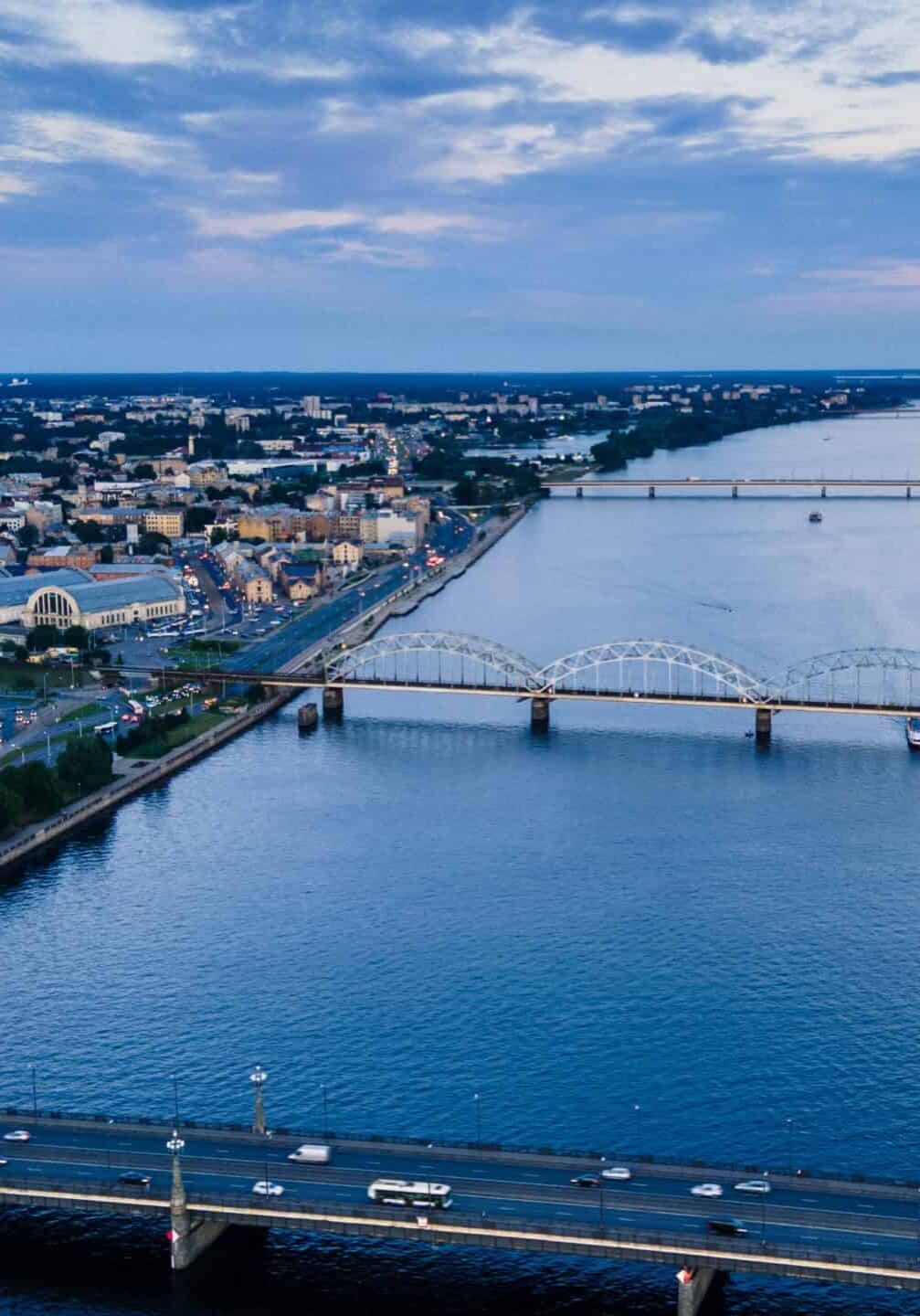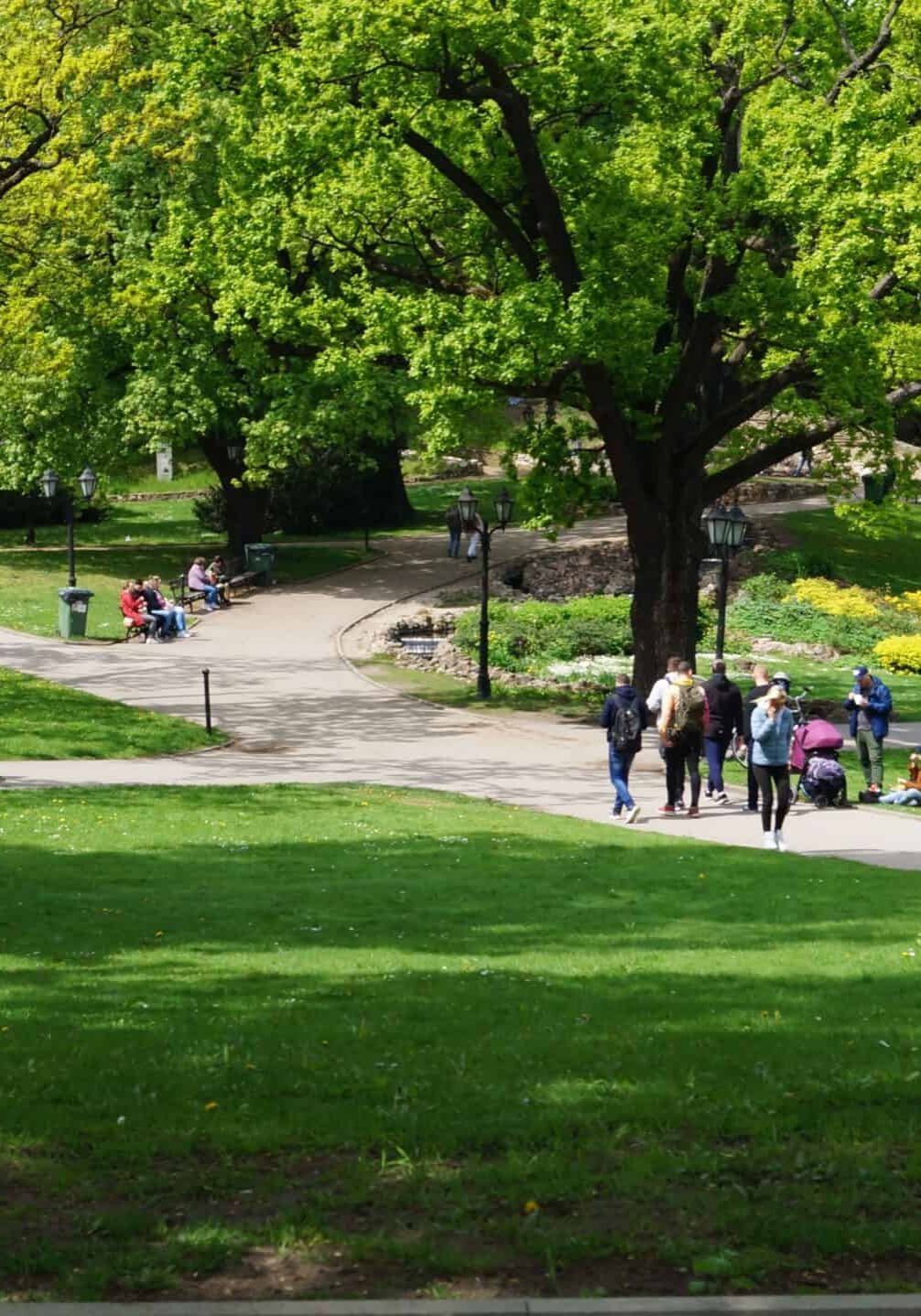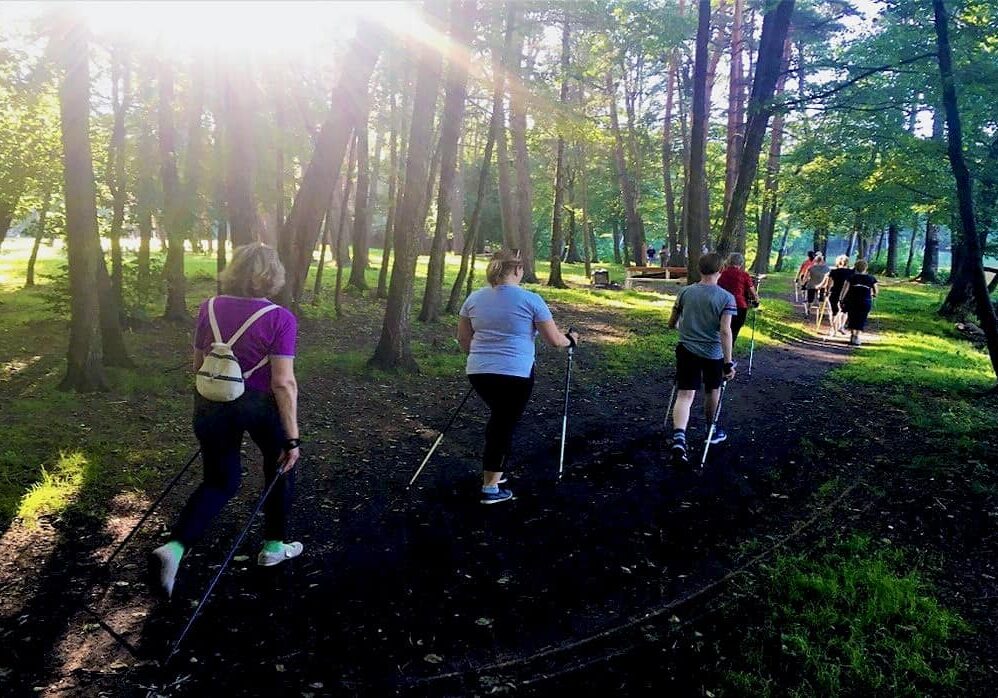The places in which we live are integral not only to our health, but also to the climate crisis we all now face.
With the European Union’s ambitious Green Deal plan already in motion to curb emissions by 2050 and with its adoption of the Zero Pollution Action Plan, it goes without saying that the way in which we currently treat and immerse ourselves in our surroundings is detrimental to our overall health. But what implementations are countries putting forward to create healthy urban areas for a healthier wellbeing?
Diāna Koerna, Chief Specialist at Riga City Council's Department of Welfare in Latvia, provides an insight as to how Riga is paving the way towards a healthier and greener city.
Cities play a crucial role in the lives of citizens. According to the United Nations an estimated 68% of the world’s population will live in urban areas by 2050.
The planning of a city will ultimately affect the wellbeing and health of its citizens. Understanding a city’s transportation network, its infrastructures and facilities, recreational zones (such as green spaces) as well as its inclusivity and safety measures all aid towards creating a more sustainable urban environment.
At the same time cities are significant contributors to climate change, being major sources of greenhouse gas (GHG) emissions for example. As new climate and energy legislation brings new challenging demands, multisectoral and intersectoral action is needed to identify the co-benefits of developing new innovative and smart solutions. For example, improving the air quality in cities will not only reduce the risks to the health of a population, but will also reduce the negative impact on the climate.
To achieve such climate and health goals, we first need to involve intersectoral cooperation between public health professionals, transport planners, urban designers, IT specialists, and other stakeholders. This intersectoral cooperation is crucial if we are to achieve the United Nations Sustainable Development Goals (SDG) such as Goal 11: Sustainable cities and communities, Goal 3: Ensure healthy lives and promote well-being for all at all ages and others.
Development Programme for healthier urban areas
With more than 670,000 inhabitants[1] currently residing in Latvia’s capital city of Riga, the city already hosts more than a third of the country’s population. A Development Programme, 2022-2027, is now being implemented to meet the challenges being faced.
When starting work on the Riga Development Program for 2022-2027 (AP2027), there were organised population surveys, seminars and working groups with municipal employees to assess the previous planning period and identify development challenges for the coming years.
In defining the priorities, special attention was paid to the integration of the UN Sustainable Development Goals, the European Commission's Goals, the National Goals, the Riga Sustainable Development Strategies until 2030, as well as the Sustainable Energy and Climate Action Plan of the City of Riga until 2030. Within the whole framework, public involvement was carried out, and defined priorities were further detailed, namely, the tasks, actions and activities of the project were determined.
The Programme has nine priorities or key development areas that include:
- Convenient and environmentally friendly commuting within the city.
- Urban environments to promote the quality of life.
- Healthy, socially inclusive, and supportive city to ensure health promotion, improved access to health care, social support for those at risk of social exclusion.
- Good environmental quality and a resilient urban ecosystem to mitigate climate change.
The Riga Development Program for 2022-2027 (1. version) was submitted for public consultation, integrating the received proposals into the final version of Riga Development Program for 2022-2027.
Unlike the previous period, the range of topics covered in the Riga Development Program for 2022-2027 are focused to include the new challenges being faced such as climate change mitigation and adaptation, co-operation in the Riga Metropolitan Area and digitalisation. Climate change as a broad topic is included not only as one of the Development Program for 2022-2027 priorities, but also as a horizontal principal, reflected in a number of priorities, especially in the areas of mobility, urban environment, housing.


Green City Accord
Having joined the European Commission’s initiative, the “Green City Accord’’ - a movement of European mayors committed to making cities greener, cleaner and healthier last year - Riga is committed to protecting its surrounding environments to create a resilient urban ecosystem for its citizens. Safeguarding its urban parks and green spaces is not only vital to better the city’s microclimate, but to also counter the urban heat island effect, reduce environmental pollution, and increase biological diversity.
Creating healthy infrastructures
Environments that provide high-quality, green infrastructures which create attractive surroundings (including a pleasant microclimate and a reduction of noise and air pollution) that enable more multifunctional and wholesome public outdoor spaces and climate and citizen-friendly mobility will hopefully encourage citizens to spend their free time in public urban environments. This key development will turn Riga into a city whose residents are motivated by the opportunities to implement a physically active lifestyle throughout their lives.
There are a variety of health promotion and disease prevention activities implemented in Riga City, including different sports and active lifestyle events, workshops, seminars, and cycles regarding a healthy lifestyle for residents of all ages.
Embracing the outdoors
One of the most attended activities in the city are those which embrace the outdoors, making use of the surrounding green area parks and forests.
Activities such as Nordic walking, yoga, physical exercise workouts, healthy walking tours for older people, outdoor summer camps for children are leading examples how these spaces are being utilised.
These training activities are free of charge and are led by experienced sport or fitness trainers. Many activities are implemented within the project, ‘We stand for a healthy Riga!’ – part of the European Social Fund under the ‘Measures to promote local public health and disease prevention’ (measure 9.2.4.2.). The project aims to improve accessibility to health promotion and disease prevention services for residents of Riga municipality, especially persons at risk of poverty and social exclusion.[2] The project is intended to be carried out near the locality of where those residents live.

Air quality index
As air quality is also an important added factor to the health and wellbeing of citizens in urban areas, Riga city has developed an air quality index page for its residents - providing data that is automatically collected and displayed on a 24-hour basis. This index page enables residents to actively monitor the air quality situation in the city and those who suffer from allergies heightened by such matters can access a free service which provides a 3 day forecast of air quality, pollen, UV and temperature.
Digital guides to get you moving
Riga city is paving the way forward with initiatives that have been set up to promote the use of the city’s green areas and encourage psychical activity. An example of such initiatives is the development of a digital guide, namely, the ‘Riga city digital healthy outdoor activities guide “Be on the move in Riga!’. The guide includes ideas for recreation, places such as Riga’s parks, promenades, sport areas and active recreation, playgrounds, recommendations for a healthy walking tour in city etc.
Providing descriptions and images, including maps to locate cultural and historic objects of interest allows for citizens to be immersed in the local outside spaces. The digital guide is user friendly and easy to use with a mobile-friendly version available too.


